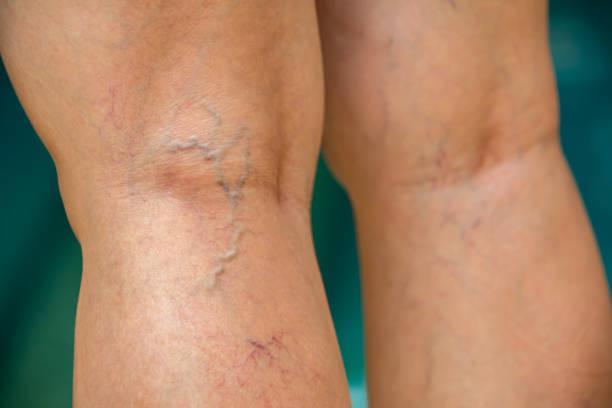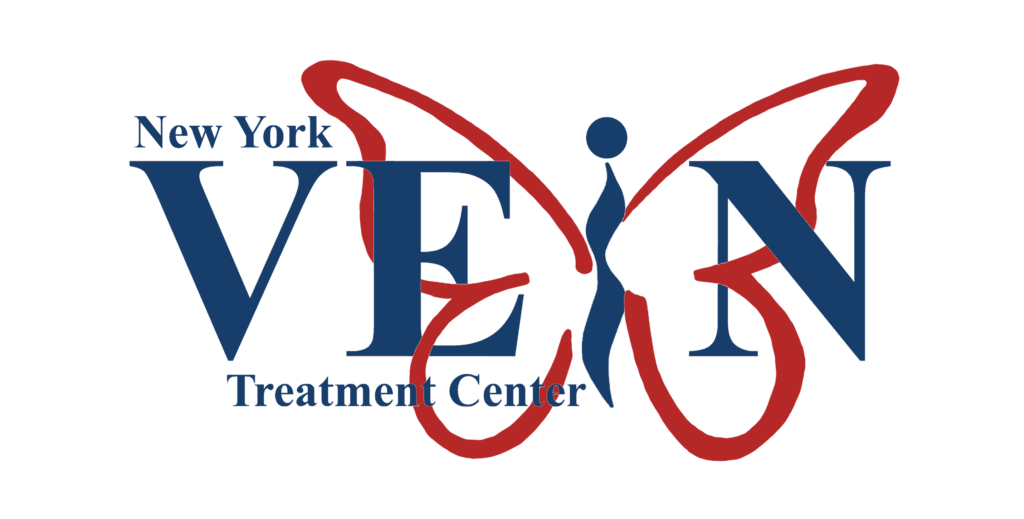Chronic venous insufficiency (CVI) is a condition that affects countless individuals, causing discomfort, swelling, and other complications. Fortunately, there are proactive steps one can take to maintain healthy veins and manage CVI effectively.
At the New York Vein Treatment Center, our dedicated chronic venous insufficiency specialists have helped improve the quality of life of numerous patients.
In this blog post, we’ll explore 12 essential do’s and don’ts for prioritizing vein health and enhancing your overall well-being.
6 Things To Do for Healthy Veins
1. Stay Active
Walking is a simple yet highly beneficial activity for promoting healthy veins. It helps engage the calf muscles, which play a vital role in pumping blood back to the heart, thereby enhancing circulation.
Incorporate regular walks into your daily routine, aiming for at least 30 minutes of brisk walking most days of the week. If you live a sedentary lifestyle, consider taking short walking breaks every hour to prevent prolonged periods of sitting or standing, which can adversely affect your vein health.
For more guidance on appropriate exercises to do for your vein health, consult a chronic venous insufficiency specialist.
2. Elevate Your Legs
Elevating your legs above the level of your heart is an effective technique for improving venous blood flow. This position helps to counteract the effects of gravity, reducing pressure in the veins and facilitating the return of blood to the heart.
Whenever possible, elevate your legs for 15-30 minutes several times throughout the day. You can prop your legs up on pillows or use a footstool to achieve the desired elevation.
Regular leg elevation can help alleviate swelling, discomfort, and fatigue associated with CVI.
3. Wear Compression Stockings
Compression stockings are specialized garments that provide graduated pressure to the legs, aiding blood circulation and reducing the symptoms of CVI. These stockings are designed to be tighter around the ankles and gradually loosen as they move up the leg.
By exerting gentle pressure on the veins, compression stockings help to improve vein function, minimize swelling, and alleviate pain or heaviness in the legs.
Consult a chronic venous insufficiency specialist to determine the appropriate compression level and fit for your specific needs.
4. Follow a Balanced Diet
A nutrient-rich diet plays a crucial role in maintaining vein health. Include foods high in fiber, as they promote proper digestion and help prevent constipation, which can contribute to CVI symptoms:
- Whole grains
- Legumes
- Fruits
- Vegetables
Antioxidant-rich foods, like berries, leafy greens, and citrus fruits, provide essential vitamins and minerals that support the health of blood vessels. Additionally, incorporate foods rich in omega-3 fatty acids, as they have anti-inflammatory properties that can benefit vein health.
5. Remain Hydrated
Adequate hydration is essential for maintaining optimal blood circulation and preventing blood from thickening or clotting. Aim to drink at least eight glasses of water per day or more if you engage in physical activity or are in a hot environment.
Proper hydration helps keep the blood thin and flowing smoothly, reducing the risk of clot formation and promoting healthy veins. If you find it challenging to drink enough water, consider flavoring it with a slice of lemon or opting for hydrating foods like cucumbers and watermelon.
6. Consult a Specialist
When it comes to managing and maintaining healthy veins, consulting with a chronic venous insufficiency specialist is crucial.
They have the expertise to assess your specific condition, provide personalized advice, and recommend suitable treatment options. By seeking professional guidance, you can gain valuable insights into managing CVI effectively and optimizing your vein health.
6 Things To Avoid To Maintain Healthy Veins
1. Sitting or Standing for Prolonged Periods
Prolonged periods of sitting or standing can lead to poor blood circulation and increased venous pressure, exacerbating vein-related issues. Avoid extended periods of immobility by taking breaks to move and stretch.
If you have a job that requires sitting or standing for long hours, make a conscious effort to incorporate regular movement into your day, such as stretching, walking, or flexing your leg muscles.
2. Smoking Tobacco
Smoking harms your blood vessels and restricts blood flow, which can significantly impact vein health.
The chemicals in tobacco smoke contribute to inflammation and damage the inner lining of blood vessels, making them more susceptible to issues like blood clots and vein constriction. Avoiding smoking is crucial in improving vein health and reducing the risk of developing or worsening CVI.
3. Wearing Tight Clothing
Wearing tight clothing, particularly around the waist, groin, or legs, can impede blood circulation and increase venous pressure. Similarly, high heels restrict the natural movement of calf muscles and hinder proper blood flow.
Opt for loose-fitting clothing and comfortable, low-heeled shoes whenever possible to support healthy blood circulation and reduce unnecessary strain on your veins.
4. Excessive Salt Consumption
Consuming excessive amounts of salt can contribute to fluid retention and swelling, which can worsen symptoms associated with CVI.
High salt intake can lead to increased blood pressure, placing additional stress on the veins. Aim to reduce your salt consumption by avoiding processed and packaged foods, and opt for fresh, whole foods seasoned with herbs and spices instead.
5. Excessive Heat Exposure
Exposing your body to excessive heat, such as prolonged hot baths, saunas, or hot tubs, can dilate blood vessels and worsen symptoms of CVI.
Heat can increase vein dilation and promote blood pooling, leading to discomfort and swelling. Instead, opt for lukewarm baths or showers and consider alternative relaxation methods such as gentle stretching or meditation.
6. Ignoring the Symptoms
Ignoring the symptoms of CVI can lead to further complications and discomfort.
If you experience persistent leg pain, swelling, heaviness, and other symptoms of CVI, seek medical advice from a chronic venous insufficiency specialist. Timely intervention can help manage existing vein problems and prevent the progression of the condition.
Maintain Healthy Veins With the Help of Our Chronic Venous Insufficiency Specialists
At the New York Vein Treatment Center, we’ve successfully treated vein diseases since 2007. Our dedicated specialists and experienced cardiovascular surgeon, Dr. Khitin, can develop a personalized and comprehensive treatment plan to meet your unique needs.
We use only the most advanced technologies and procedures to deliver exceptional patient outcomes.
Schedule a consultation with our chronic venous insufficiency specialists today!

Dr. Lev Mark Khitin, a leading cardiovascular and thoracic surgeon, is the founder of the New York Vein Treatment Center. With almost 20 years of experience and over 20,000 successful vein procedures, he is a renowned expert in the diagnosis and treatment of venous disease. Dr. Khitin’s patient-centered approach and advanced surgical skills have consistently delivered excellent results, making him a prominent figure in the field.


